Outer Hebrides: The unheard histories of Scottish island women now told
Every woman has a story – but in the Outer Hebrides they have perhaps waited longer than most to have them heard.
Now a new book, Women of the Hebrides; Stories of Strength and Courage by Dr Joni Buchanan, brings together dozens of illuminating and often moving accounts of a woman’s place in island life – as told by the women themselves, or those who remember them.
Advertisement
Hide AdAdvertisement
Hide AdDr Buchanan, who was born in Lewis, said she wrote the book given a strong feeling that island women had not been represented fully and accurately in the past, partly because academics, historians and officialdom had heavily functioned through the male perspective over time.
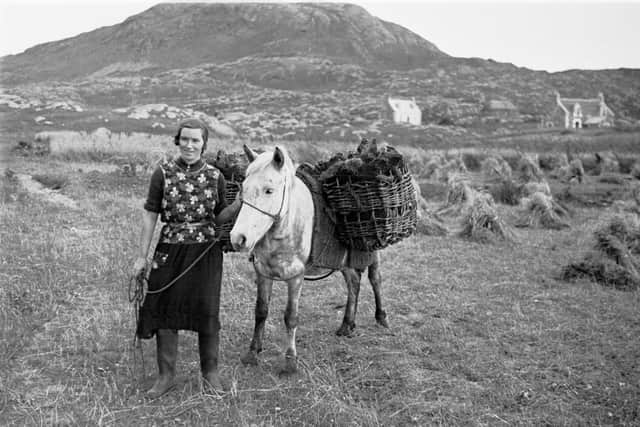

Meanwhile, the “profoundly gendered” structure of clanship had also led to great gaps in how women were recorded. Depictions by male writers typically included the “occasionally powerful” woman or a malevolent figure trying to coax her weak husband into action. She may also have been a nursemaid – or a fallen woman.
Stereotypical images of island women had also been perpetuated by some researchers, including one as late in 2005 which claimed women in the Western Isles were “reliant on men for their status, protection and power and have little control over their own lives”.
For Dr Buchanan, who was raised “among women of enormous strength and character”, these accounts were hard to recognise. Her people were weavers and seamstresses, those who fed and clothed generations and cared for sick folk. They raised animals and passed down culture and tradition. They went to work away from home, as nurses, as domestic service or followed the herring boats across the country with their gutting knives.
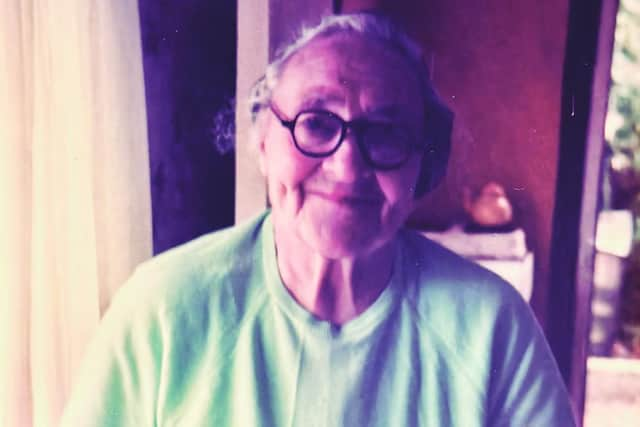

“The women I grew up with bore no relation at all to some of the stuff I was reading,” she said. “There were lots of very off interpretations of island women as if we were different from other women across the globe, which we are not.”
The rural nature of the women’s lives had long put them off radar, she added.
“It is not just the Hebrides, it is rural society,” she said. “They are agrarian people, they work they land, so that is a big reason that they are not on the radar, or haven’t been on the radar.
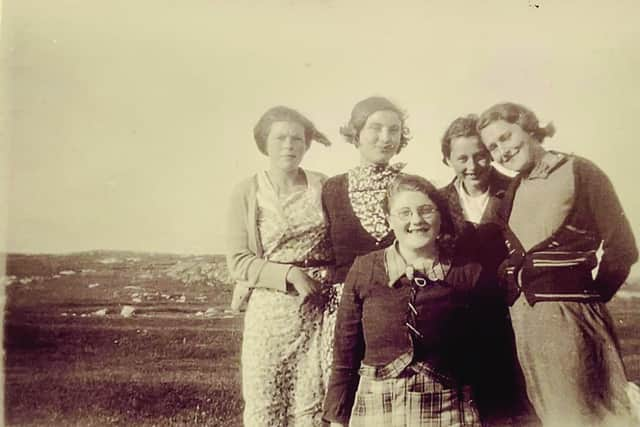

"And also they didn’t have the wherewithal to write their own stories. They made songs, they made poetry, but no one had the education. That is how it was. It was a very traditional society and things continued like that until the 1920s and ‘30s. The Highland mainland would be the same and areas of rural Ayrshire and Dumfries and Galloway would be the same.
Advertisement
Hide AdAdvertisement
Hide Ad"If you look at various inquiries or reports, there were no women called to bear witness to anything. It was was a male-dominated society and the history was also written by men.”
The book charts key turning points in ways of life in the islands, not least those brought around by the two world wars. Mairi Ferguson Mackenzie of Lewis, born in 1896, earlier spoke of a life of barley threshing and loads of peat, seaweed or manure strapped to her back.
Ms Mackenzie said: “I’d say they were content, the days of my youth. My dear, it was happy enough ‘til the Great War came, it took the young men on the one night. The boys who were enjoying life, war took them all away on the one night and most were never to return. That killed everything, it ended the enjoyment of life that generation had had, it killed almost everything, and the world changed after that.”
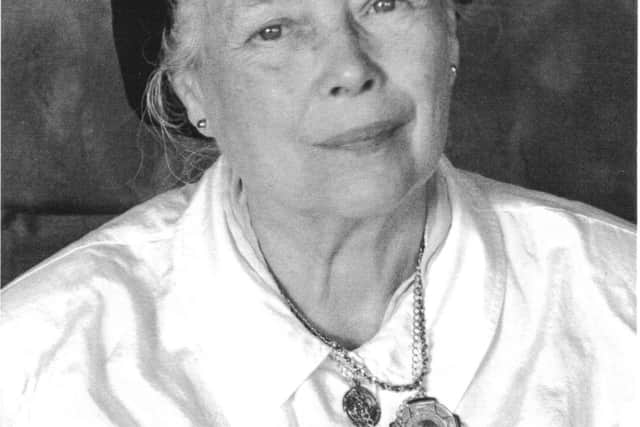

The annual summer trip to the shielings and summer grazings by women and children, who would often spend six weeks up in the open moors in what was often documented as a joyful family time, also came to an end due to war, with shielings moved closer to home due to uncertainty of the times and the advent of war work.
Dr Buchanan’s book features accounts of women primarily from the early 20th century, most of them now gone, but who collectively build up a powerful picture of quiet strength and unfussy-ness.
Crofter Kate Dix, who was born on Berneray in 1890, is remembered as a rich seam of ancient tales, a composer of verse and a fit, hard-working woman. When she wasn't tilling the croft or baking, she’d be passing her time swimming or playing draughts with with the ferryman.
Women of poetry, music and song are among those remembered, including the late Nan Mackinnon of Vatersay, a fish gutter whose remarkable memory held tales from the age of the Lordship of the Isles and a catalogue of ancient sagas, lore and songs of the sea. The story of Kitty Macleod, a singer and teacher who had “profound” knowledge of Gaelic language and song, is also featured.
Dr Buchanan wrote of the early struggles of South Uist piper Rona Lightfoot, who faced a “raw and deeply engrained misogyny, which characterised the world of Scottish piping”.
Advertisement
Hide AdAdvertisement
Hide AdMrs Lightfoot, who recalled collecting corn stalks to make reeds, won the Ceol Mòr at the Uist Games on two consecutive occasions in the 1970s, but was stopped from competing in London. Later, she was permitted to play at the Northern Meetings, but hurdles were placed in her way at every turn. Once, she was only allowed to play some reels if she put on a sporran.
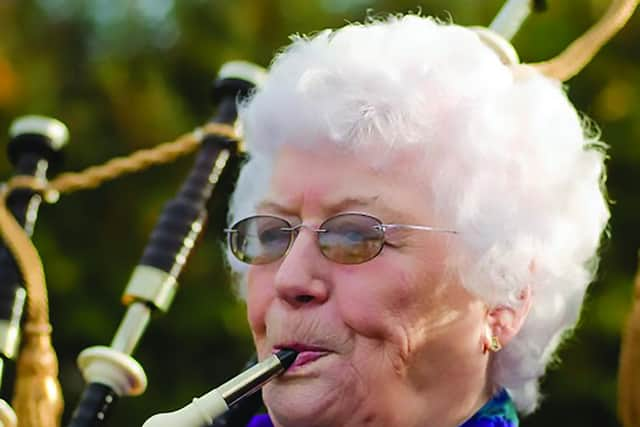

Dr Buchanan added: “Every rule and loop of red tape was used to stop her competing, but she fought on and became the most successful piper, of either gender, of her generation.”
Dr Buchanan said she “adored” all the women she spoke to for her new book, describing it as a privilege.
She said: “But I also worked in Ruchill for about five years and I felt the women in Ruchill were marvellous and I adored them as well. I know women everywhere are strong and capable and are stunning in what they do.
“This book is about having your stories told and having that cultural and social and domestic life integrated into our history in a way that it just hasn't been.”
Women of the Hebrides; Stories of Strength and Courage by Dr Joni Buchanan, is published on Friday by Acair Books.
Comments
Want to join the conversation? Please or to comment on this article.